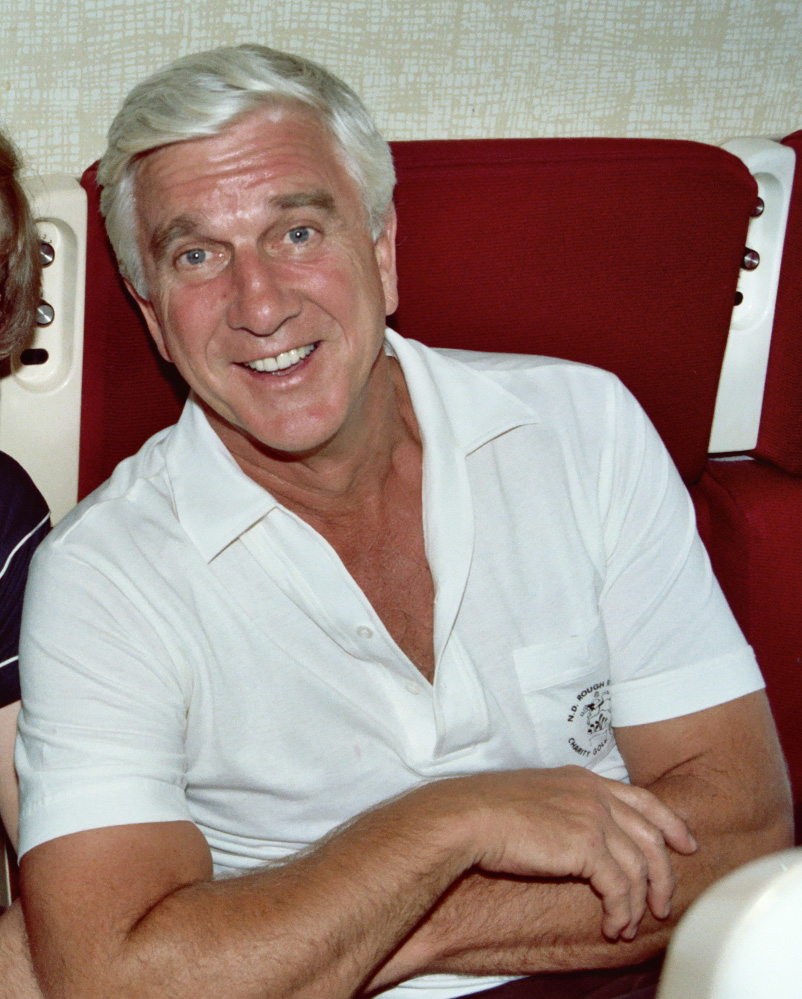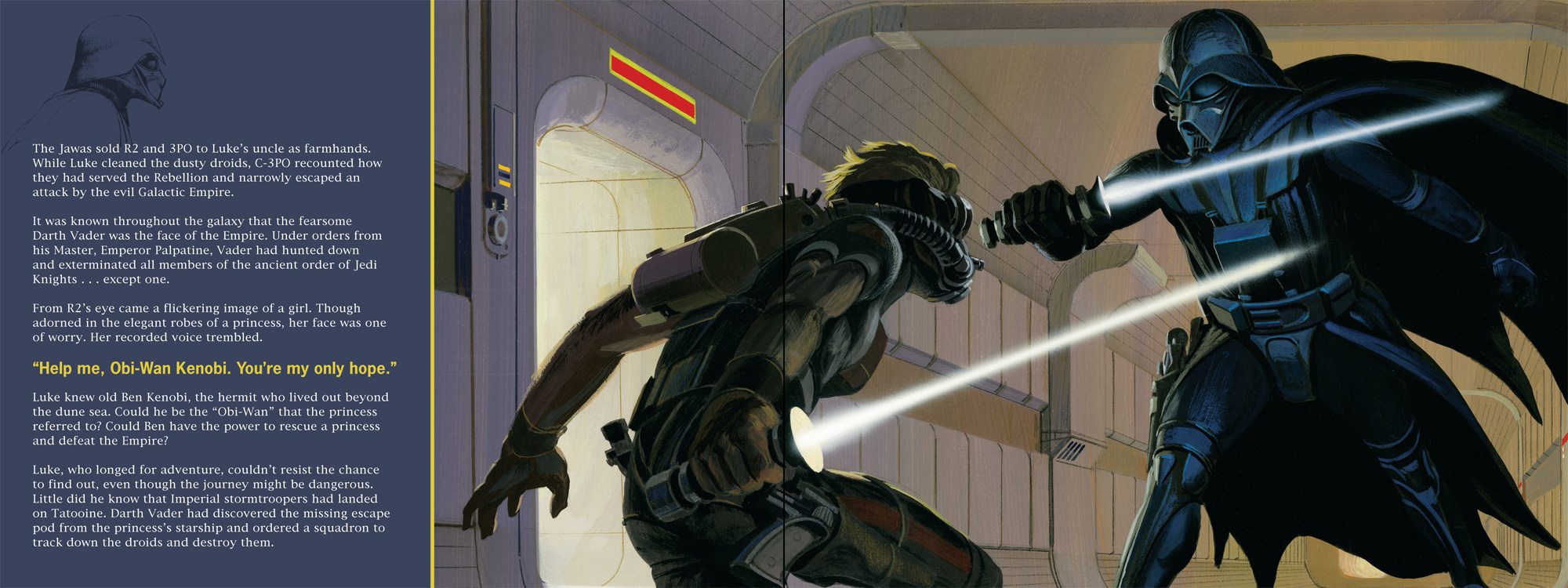Earlier this week, we lost the great deadpan comic actor Leslie Nielsen. Nielsen leaves behind six decades of film and television artifacts that feature over 200 of his characters, ranging from romantic leads to despicable heavies and oblivious comedians.
I don’t know what kind of real-life parent Nielsen, who died Sunday of complications from pneumonia, was to his two daughters, but surely we geeks can take inspiration from some of his classic work. And fine, I’ll stop calling you Shirley.
That Thing Out There Is You
The kickstarter for Nielsen’s career was the classic science fiction movie Forbidden Planet, which set up the entire genre with film firsts like human-made flying saucers and robots with personality. Nielsen’s leading man turn as Commander John J. Adams is viewed by some as the forerunner to Star Trek‘s Captain Kirk, right down to the skin-tight uniforms and luck with the space ladies. The plot — drawing inspiration from Shakespeare’s The Tempest — pits Adams against Morbius, a man marooned on a distant planet with his daughter after his expedition was wiped out by an invisible monster. The destruction, in turns out, is caused by ancient alien technology that Morbius accessed. As Adams puts it: “Morbius, that thing out there — it’s you.”
As parents, we often feel a tension between identifying with our children and controlling them. It would be difficult not to see ourselves in these carriers of our DNA. The memories we recall by witnessing little versions of ourselves running around in diapers and capes can be helpful both in anticipating learning moments and empathizing with the struggles our kids have. At times, we must draw the line to set boundaries for behavior and safety and cultivate a preferred philosophy of living. We can go overboard in both, of course — living vicariously through our kids, dictating their choices. There is value to seeking out the differences and letting our children lead us. It reminds us of our limitations; as Adams would say, “we are, after all, not God.”
Mayday, Mayday!
One of the reasons Nielsen got a chance to show his comedic side was his successful portrayal of dramatic roles in disaster films, like Captain Harrison in The Poseidon Adventure. The Captain protests but is overruled by a Suit’s decision to proceed through troubled waters at full speed, rejecting the additional ballast needed to keep the boat afloat. When Harrison is called to the bridge to investigate an undersea earthquake, he only has enough time to issue futile calls for help and attempt a sharp left turn before succumbing to the sea.
Asking for help, especially early enough to avoid disaster, is one of the most difficult things a parent can do. From the start, we fend off a recurring perception of failure: I can’t handle the task of child-raising. Seeking assistance can be seen as a sign of weakness, or as a scarce commodity that should be tapped only in emergencies. Sometimes, the absence of a sufficient support network can prevent a timely Mayday call. Parents need allies. We can help each other by being aware of these moments of doubt, offering attention, praise, and practical help.
We’re All Counting On You
Things changed for Nielsen when David Zucker, Jim Abrahams, and Jerry Zucker (ZAZ) came calling, casting the veteran actor in a beloved spoof of disaster films. As Dr. Rumack in Airplane!, Nielsen provided leadership and punchlines on the pilot-less plane. He also made a habit of wishing the protagonists good luck with a stress-inducing, “We’re all counting on you” (even after the threat was over).
As with landing a passenger airline while haunted by war demons, parenting is seeped in pressure. It comes from the ebb and flow of cultural expectations for what “works” in raising kids. It comes from one’s own parents trying to deal with the differences in generational contexts, and from the unmarried couple sitting at the next table, confident they’ll never let their kids be that loud. It comes from within, too, as we try to give our kids a better childhood than our own while making things up as we go along. Everyone wants us to raise future contributors to society, but focusing on that expectation can be overwhelming.
Take some time to be present in the moment, even to celebrate it, and keep the tasks at hand manageable. Sometimes, the key to avoiding a big crash is remembering whether you had fish, steak, or lasagna for lunch.
Don’t Talk While the Gun is Firing
The thirty years after the release of Airplane! saw Nielsen’s comedic career take flight. Again backed by ZAZ, Nielsen took a brilliantly funny television character to the big screen in the Naked Gun trilogy. Lt. Frank Drebin was a stereotypical TV police detective delivering deadpan punchlines. In one scene, Drebin chastises the criminal element attacking him: “I can’t hear you! Don’t fire the gun while you’re talking!”
Instead of firing machine guns at me in a shootout, my kids’ challenging behavior is characterized by loud voices and occasional tears. According to Ross Greene, that behavior occurs when “the demands of the environment exceed a kid’s capacity to respond adaptively.” In other words, the fact that a child is in that state is already an indication he is incapable of listening to reason. Context and timing matter. When one is facing a challenge is not a teaching moment. The next moment may be, however, if you can find a way to connect first.
Doing Nothing Is Difficult
Off screen, Leslie Nielsen could still be funny. He once observed, “Doing nothing is very hard to do … you never know when you’re finished.” I’m not sure if he was talking about career anxiety or his acting assignments, but the insight also applies to how we interact with our kids: It is difficult for a parent to see a kid struggling and not be compelled to intervene.
In some cases, it is important that we step in to protect mistakes from exploding. Much of the time, however, our impulse to act is triggered more frequently than the situation requires. Particularly for dads, fixing problems is one of the ways we seek feedback on how we’re doing as a parent. Mistakes can hurt*. Standing idly by is counter-intuitive, yet letting mistakes happen — while also creating a supportive environment—can stimulate positive outcomes like higher self-esteem and adaptive skills.
* Maybe not as much as landing on a bicycle with the seat missing, Hapsburg, but they still hurt!
Leslie Nielsen, you will be missed.


